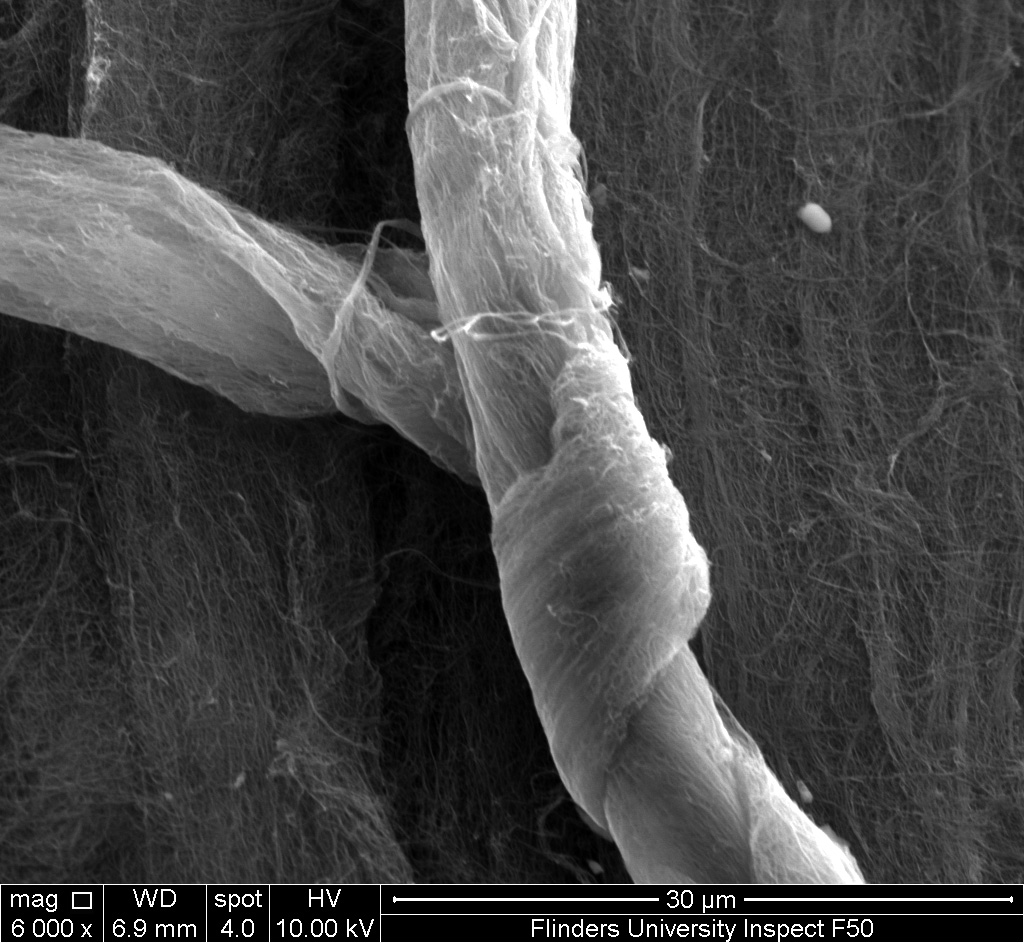X-rays are being used in increasingly varied applications creating demand for a variety of smaller, portable, higher resolution, high throughput devices. These include machines for medical and inspection techniques, such as radiotherapy, CT scans, breast cancer screening, security inspection and high throughput manufacturing.
Micro-X Ltd has collaborated with researchers from Flinders University and the University of Adelaide, with help from a grant from the Department of Innovation Science and Technology, and developed and patented an innovative, electronic X-ray tube, using carbon nanotubes (CNT) to miniaturise the X-ray generation components. This X-ray tube is the key to reducing size, weight, heat and power and produce truly portable X-ray machines. Their proprietary CNT emitter is now manufactured in Adelaide and will form the basis for all Micro-X’s X-ray products.
Micro-X is the first company to commercialise CNT-based X-ray tubes.
Microscopy at our Flinders University facility has provided Micro-X with a better understanding of their systems and refined their manufacturing processes. Fellow NCRIS facility the ANFF was also used to fabricate components.

Scanning electron micrograph of a carbon nanotube bundle.
Micro-X’s in-house, local manufacture provides substantial benefits in reduced costs, reduced cycle time, improved quality, increased scalability and independence in the supply chain.
Micro-X designed and now manufactures the DRX-Revolution Nano for Carestream Health, which won a 2018 Good Design Award. Nano is now installed in an increasing number of Australian and international hospitals. Production was increased in response to COVID-19.
Micro-X has completed two contracts with the Australian Defence Force for a mobile backscatter imager to detect IEDs and an ultra-lightweight, digital, mobile X-ray unit for deployed military medical facilities, with potential applications in humanitarian aid and disaster relief.
Micro-X has completed one and is operating a second contract with the UK Department for Transport’s Future Aviation Security team to develop an imager to detect small amounts of explosive materials concealed in electronics within passenger’s carry on luggage.
In conjunction with the Australian Stroke Alliance, Micro-X has also produced preliminary designs for a brain CT device that can be mounted into road and air ambulances to diagnose stoke victims prior to transfer to hospital and a higher resolution 3D breast cancer screening device that doesn’t require breast compression.
Micro-X has committed to developing, sourcing and manufacturing components locally, supporting Australian manufacturing and creating jobs in South Australia, with over 85% of Nano domestically sourced.
Array
September 22, 2020